Cop27: the UN climate change conference - in pictures
Time is running out in Sharm El-Sheikh for delegates to reach agreement on tougher climate action

A free daily email with the biggest news stories of the day – and the best features from TheWeek.com
You are now subscribed
Your newsletter sign-up was successful
There has been slow progress at the UN Cop27 climate conference where countries have come together over the last two weeks to try to agree action on climate change.
With less than 72 hours to go before proceedings draw to a close in the Red Sea resort of Sharm El-Sheikh in Egypt, some delegates “began to discuss the possibility the summit would go overtime into the weekend”, reported Reuters. Nations are “snagged on issues including funding for developing nations to combat and adapt to climate change”.
There have also been calls for rich countries to pay compensation “for the irreparable loss and damage wrought on countries on the frontlines of the climate crisis”, said The Independent. But “signs of significant progress” have been “few and far between”.
The Week
Escape your echo chamber. Get the facts behind the news, plus analysis from multiple perspectives.

Sign up for The Week's Free Newsletters
From our morning news briefing to a weekly Good News Newsletter, get the best of The Week delivered directly to your inbox.
From our morning news briefing to a weekly Good News Newsletter, get the best of The Week delivered directly to your inbox.
A draft text of what will eventually end up as the final agreement of the Cop27 summit was published on Thursday, repeating last year’s goals to “to accelerate measures towards the phase-down of unabated coal power and phase out and rationalise inefficient fossil fuel subsidies”.
But hopes of building on last year’s ambitions now look distant, with the draft text failing to call for a “phase down” of all fossil fuels, as requested by the European Union and India.
Here are some of the key images from this year’s summit.

Ukrainian president Volodymyr Zelenskyy addressed delegates via video link last week. He told the conference that Russia’s invasion of his country threatened international efforts to tackle climate change.
A free daily email with the biggest news stories of the day – and the best features from TheWeek.com
“We must stop those who, with their insane and illegal war, are destroying the world’s ability to work united for a common goal,” he said. “They are the ones who start wars of aggression when the planet cannot afford a single gunshot, because it needs global joint actions.”
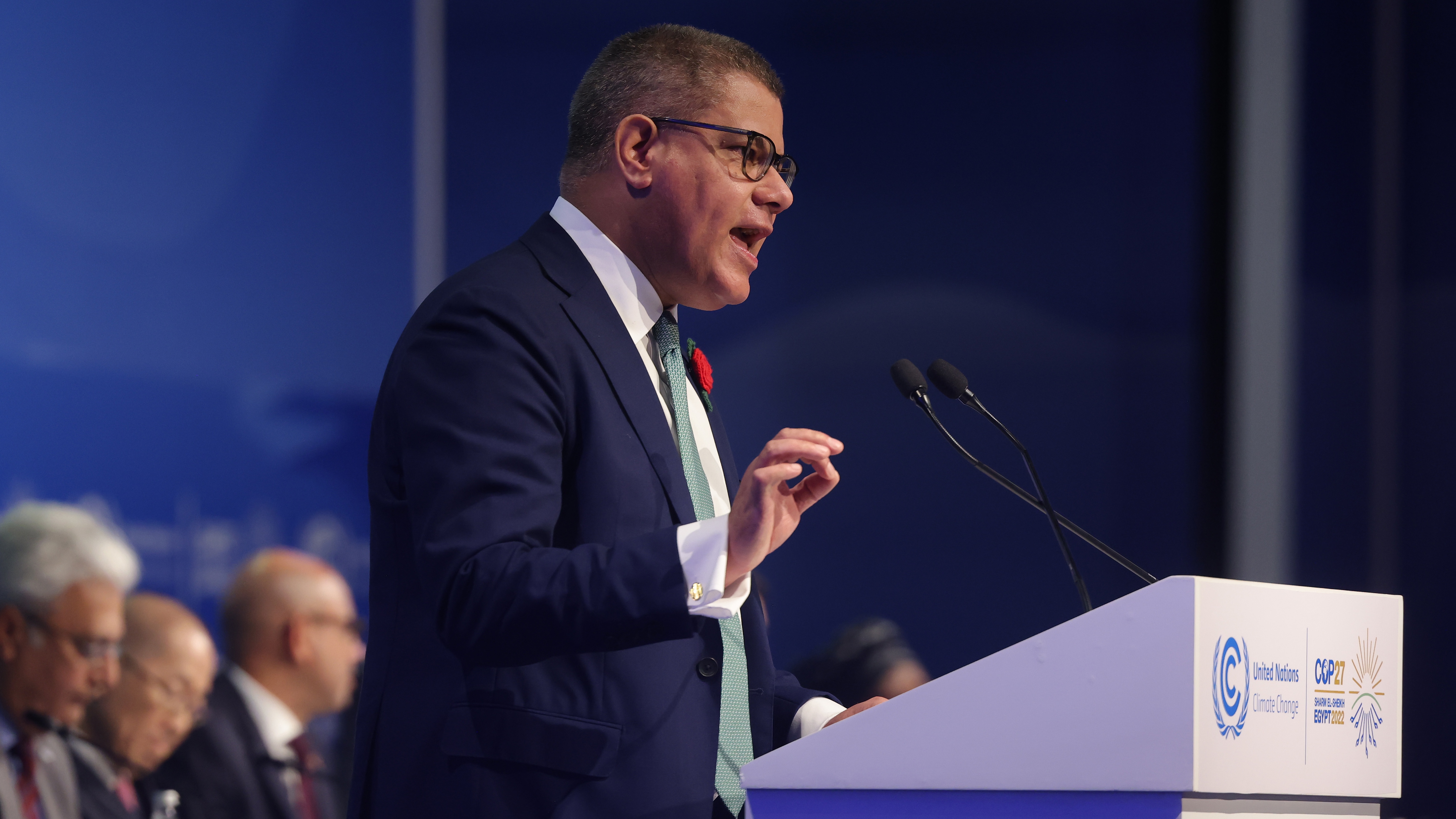
Addressing delegates on Monday, Alok Sharma, president of the Cop26 conference that took place in Glasgow last year, warned against “backsliding” on the promise to limit the global temperature rise to no more than 1.5C above pre-industrial levels.
“We’ll either leave Egypt having kept 1.5C alive, or this will be the Cop where we lose 1.5C,” he told a high-level ministerial roundtable. “At Cop26 we did resolve collectively to pursue efforts to limit the temperature increase to 1.5C,” the former UK business secretary said.
“I have always said what we agreed in Glasgow and Paris has to be the baseline of our ambition. We’ve got to stick to that commitment. We cannot allow any backsliding.”
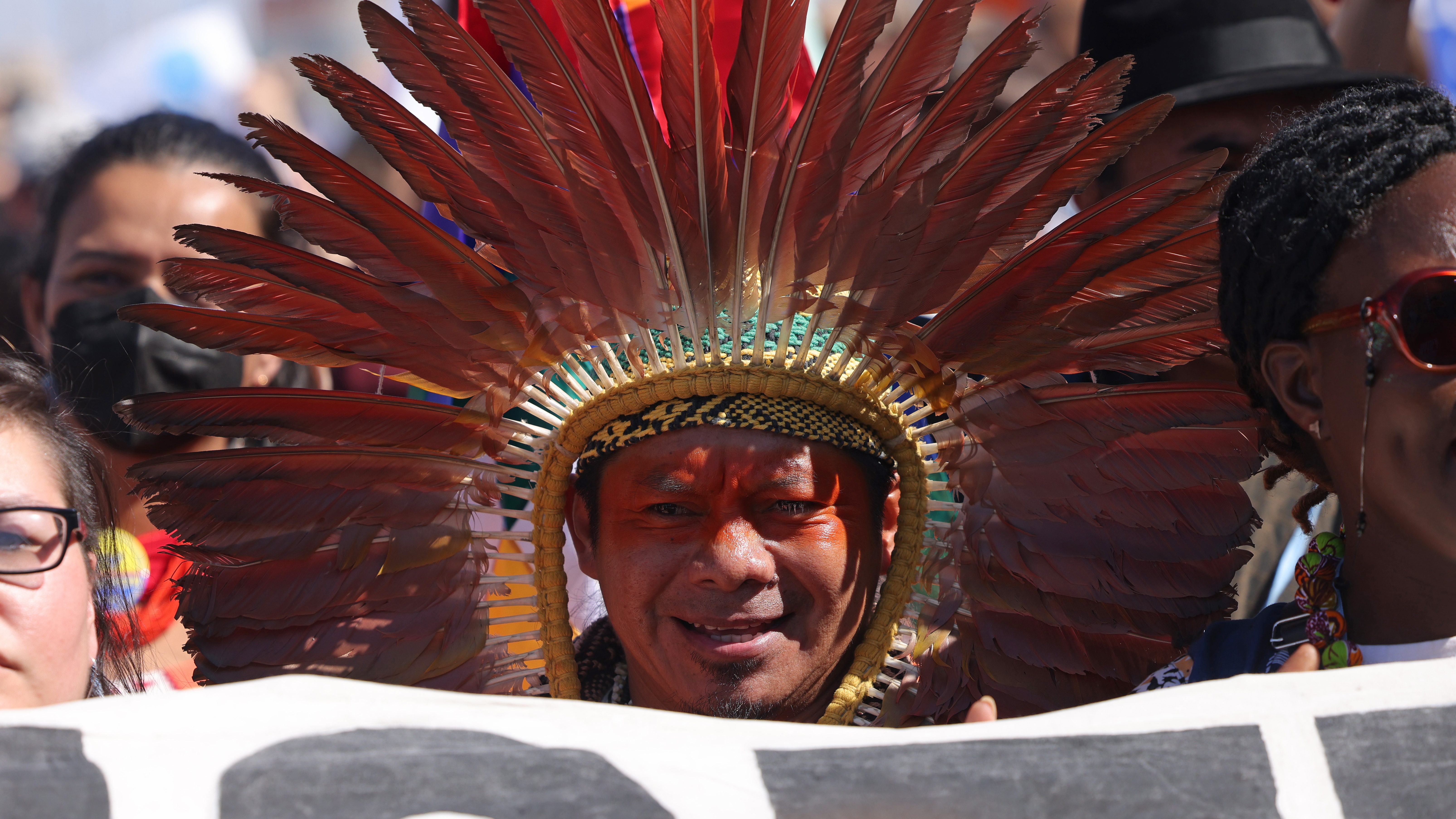
Ninawa Huni Kui, president of the Federation of Huni Kui Peoples in Brazil’s Amazon basin, demonstrated outside the climate summit in traditional dress.
He told AFP that Indigenous communities “are not the focus of discussions” and expressed frustration over the lack of access to the decision-making process at the conference. “We don’t have much hope for what is happening at Cop27,” he said.
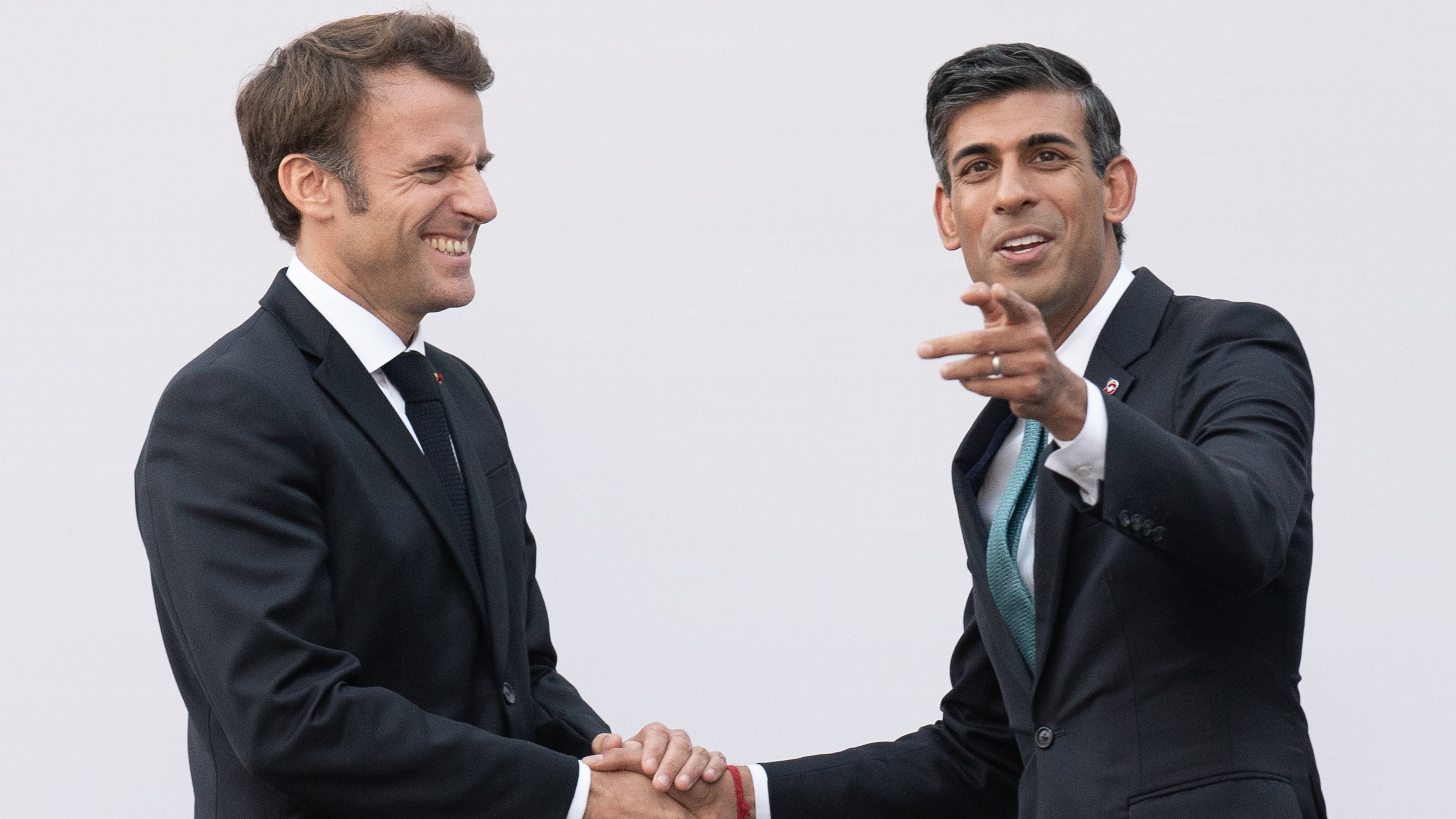
Emmanuel Macron and Rishi Sunak held a bilateral meeting at Cop27 – Sunak’s first talks with the French president since he became prime minister. In what the Daily Mail described as a “pally” meeting, the pair discussed climate matters as well as a new deal in which the UK will give additional funding to France in order to tackle the number of migrants crossing the Channel in small boats.
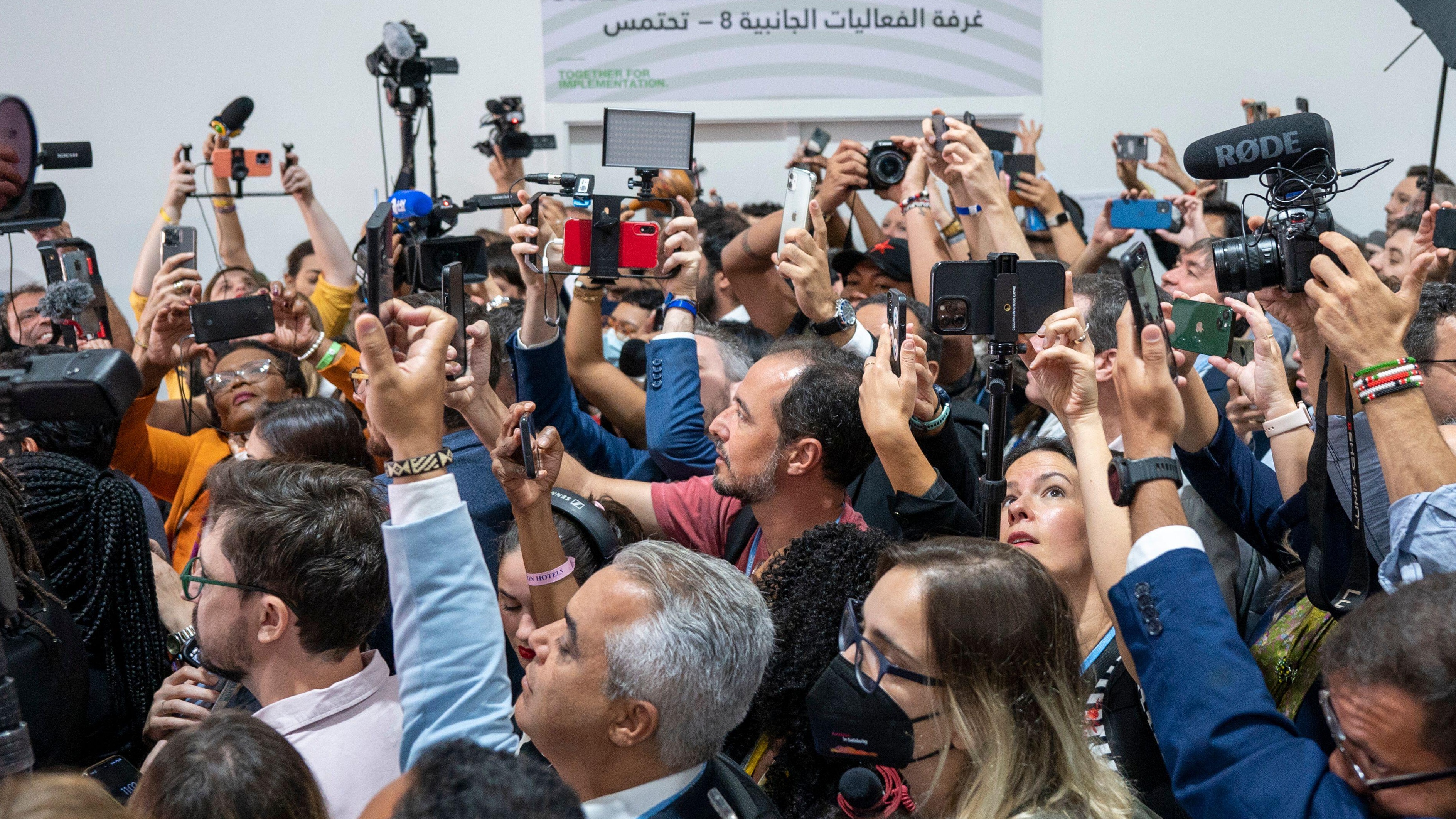
Journalists were keen to take photos of the arrival of Brazil’s new president Luiz Inácio Lula da Silva at the UN climate conference. “Lula is definitely this year’s Obama,” tweeted The Times’s envrionment editor Adam Vaughan, who noted that people were queuing up for his speech an hour before it was due to take place.
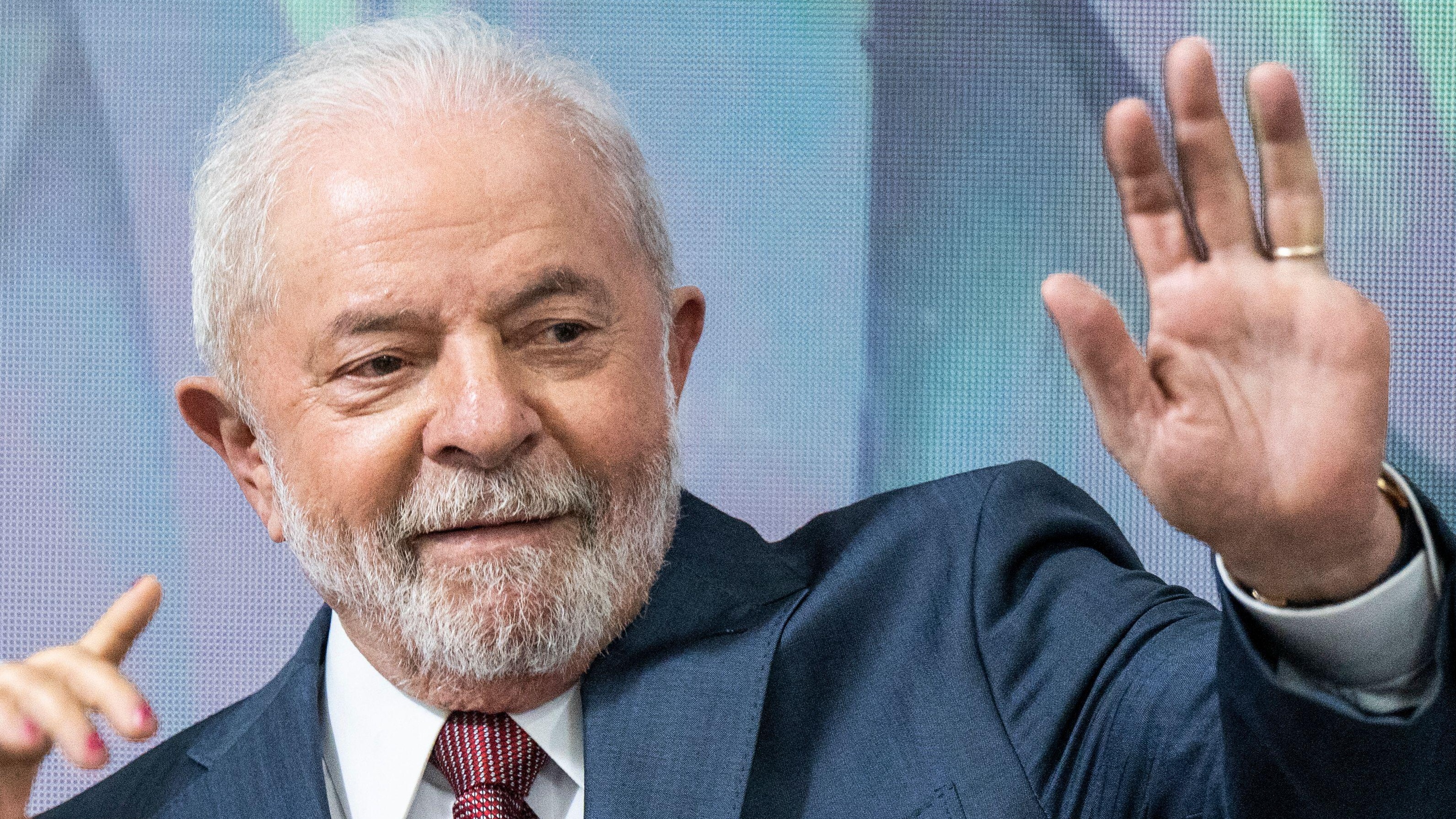
Lula received “a superstar welcome” at the climate conference, said Reuters. In his speech, the newly elected president of Brazil, who beat off right-wing former president Jair Bolsonaro in last month’s election, said that “Brazil is ready to come back” and be a global leader in the fight against climate change.
He revealed that Brazil would be bidding to host Cop30 and announced plans to hold the conference in an Amazonian city, rather than in the country’s more populous coastal regions.
-
 The ‘ravenous’ demand for Cornish minerals
The ‘ravenous’ demand for Cornish mineralsUnder the Radar Growing need for critical minerals to power tech has intensified ‘appetite’ for lithium, which could be a ‘huge boon’ for local economy
-
 Why are election experts taking Trump’s midterm threats seriously?
Why are election experts taking Trump’s midterm threats seriously?IN THE SPOTLIGHT As the president muses about polling place deployments and a centralized electoral system aimed at one-party control, lawmakers are taking this administration at its word
-
 ‘Restaurateurs have become millionaires’
‘Restaurateurs have become millionaires’Instant Opinion Opinion, comment and editorials of the day
-
 Earth is rapidly approaching a ‘hothouse’ trajectory of warming
Earth is rapidly approaching a ‘hothouse’ trajectory of warmingThe explainer It may become impossible to fix
-
 The plan to wall off the ‘Doomsday’ glacier
The plan to wall off the ‘Doomsday’ glacierUnder the Radar Massive barrier could ‘slow the rate of ice loss’ from Thwaites Glacier, whose total collapse would have devastating consequences
-
 Can the UK take any more rain?
Can the UK take any more rain?Today’s Big Question An Atlantic jet stream is ‘stuck’ over British skies, leading to ‘biblical’ downpours and more than 40 consecutive days of rain in some areas
-
 As temperatures rise, US incomes fall
As temperatures rise, US incomes fallUnder the radar Elevated temperatures are capable of affecting the entire economy
-
 The world is entering an ‘era of water bankruptcy’
The world is entering an ‘era of water bankruptcy’The explainer Water might soon be more valuable than gold
-
 Climate change could lead to a reptile ‘sexpocalypse’
Climate change could lead to a reptile ‘sexpocalypse’Under the radar The gender gap has hit the animal kingdom
-
 The former largest iceberg is turning blue. It’s a bad sign.
The former largest iceberg is turning blue. It’s a bad sign.Under the radar It is quickly melting away
-
 How drones detected a deadly threat to Arctic whales
How drones detected a deadly threat to Arctic whalesUnder the radar Monitoring the sea in the air